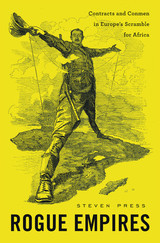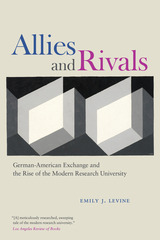
Support of the Ottoman Empire was official British policy for some forty years following the Crimean War. A widespread and astonishing confidence prevailed in England: whatever past and continuing deficiencies might exist, the Ottoman Porte, as the government of the Empire was known in Europe, was determined to westernize and in fact was becoming more British every day. But reports of a series of alleged massacres by the Turks against their Bulgarian subjects scandalized Britain in 1876, igniting a firestorm of protest that shook the nation. Reluctant Icon tells the story of one of the most relentless social crusades of the Victorian era. Under the leadership of former prime minister William Ewart Gladstone, a loose coalition of Nonconformists, Radicals, and High Churchmen created a climate of indignation over the massacres that was strong enough to call into question the Disraeli government’s policy toward the Near East.
This absorbing analysis by Ann Pottinger Saab draws on contemporary newspaper accounts, parliamentary petitions, and the diaries and personal papers of Gladstone to recreate a pivotal episode in late nineteenth-century British history. Saab provides an informative historical backdrop to her study by tracing the multiple sources of strain in British–Ottoman relations that existed before the massacres. She then examines Gladstone’s evolving role as public idol and backstage adviser to a coterie of special groups that became bonded to him by a shared moral vision and a sense of continuing emergency. Through the lens of the Bulgarian agitation, Gladstone emerges as a man motivated more by his own complex emotional and political drives than by opportunism, a somewhat different picture from that presented by earlier historians. The heart of the book is Saab’s richly detailed exploration of the nascence and maturation of the militant, extra-parliamentary, multi-class protest movement itself, which mobilized the anger of groups previously outside politics such as newly enfranchised working men.
Reluctant Icon yields new insights on Gladstone, on the language of Victorian social protest, and on a national protest movement remarkable as much for its cohesiveness and longevity as for its fervor. It will be welcome reading for all those with an abiding interest in the Victorian age and especially for scholars and students of social, religious, and diplomatic history.

In the 1880s, Europeans descended on Africa and grabbed vast swaths of the continent, using documents, not guns, as their weapon of choice. Rogue Empires follows a paper trail of questionable contracts to discover the confidence men whose actions touched off the Scramble for Africa. Many of them were would-be kings who sought to establish their own autonomous empires across the African continent—often at odds with traditional European governments which competed for control.
From 1882 to 1885, independent European businessmen and firms (many of doubtful legitimacy) produced hundreds of deeds purporting to buy political rights from indigenous African leaders whose understanding of these agreements was usually deemed irrelevant. A system of privately governed empires, some spanning hundreds of thousands of square miles, promptly sprang up in the heart of Africa. Steven Press traces the notion of empire by purchase to an unlikely place: the Southeast Asian island of Borneo, where the English adventurer James Brooke bought his own kingdom in the 1840s. Brooke’s example inspired imitators in Africa, as speculators exploited a loophole in international law in order to assert sovereignty and legal ownership of lands which they then plundered for profit.
The success of these experiments in governance attracted notice in European capitals. Press shows how the whole dubious enterprise came to a head at the Berlin Conference of 1884–1885, when King Leopold of Belgium and the German Chancellor Bismarck embraced rogue empires as legal precedents for new colonial agendas in the Congo, Namibia, and Cameroon.
READERS
Browse our collection.
PUBLISHERS
See BiblioVault's publisher services.
STUDENT SERVICES
Files for college accessibility offices.
UChicago Accessibility Resources
home | accessibility | search | about | contact us
BiblioVault ® 2001 - 2024
The University of Chicago Press









